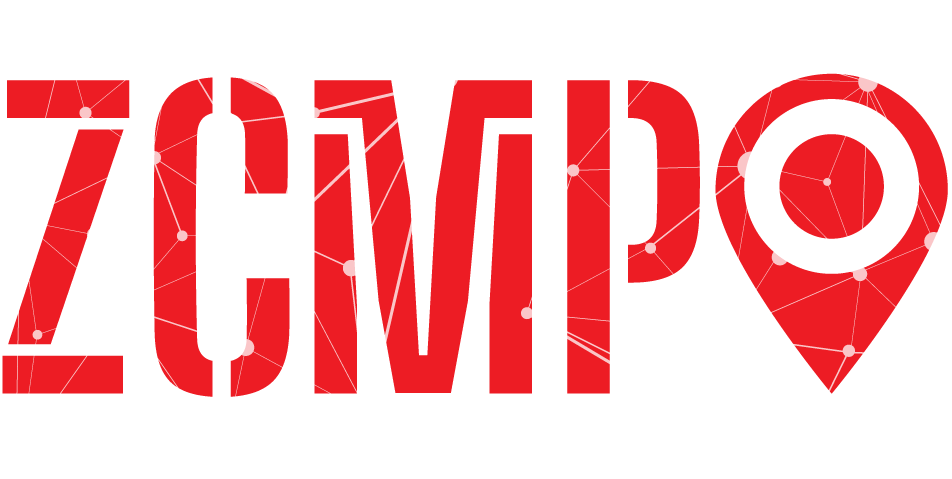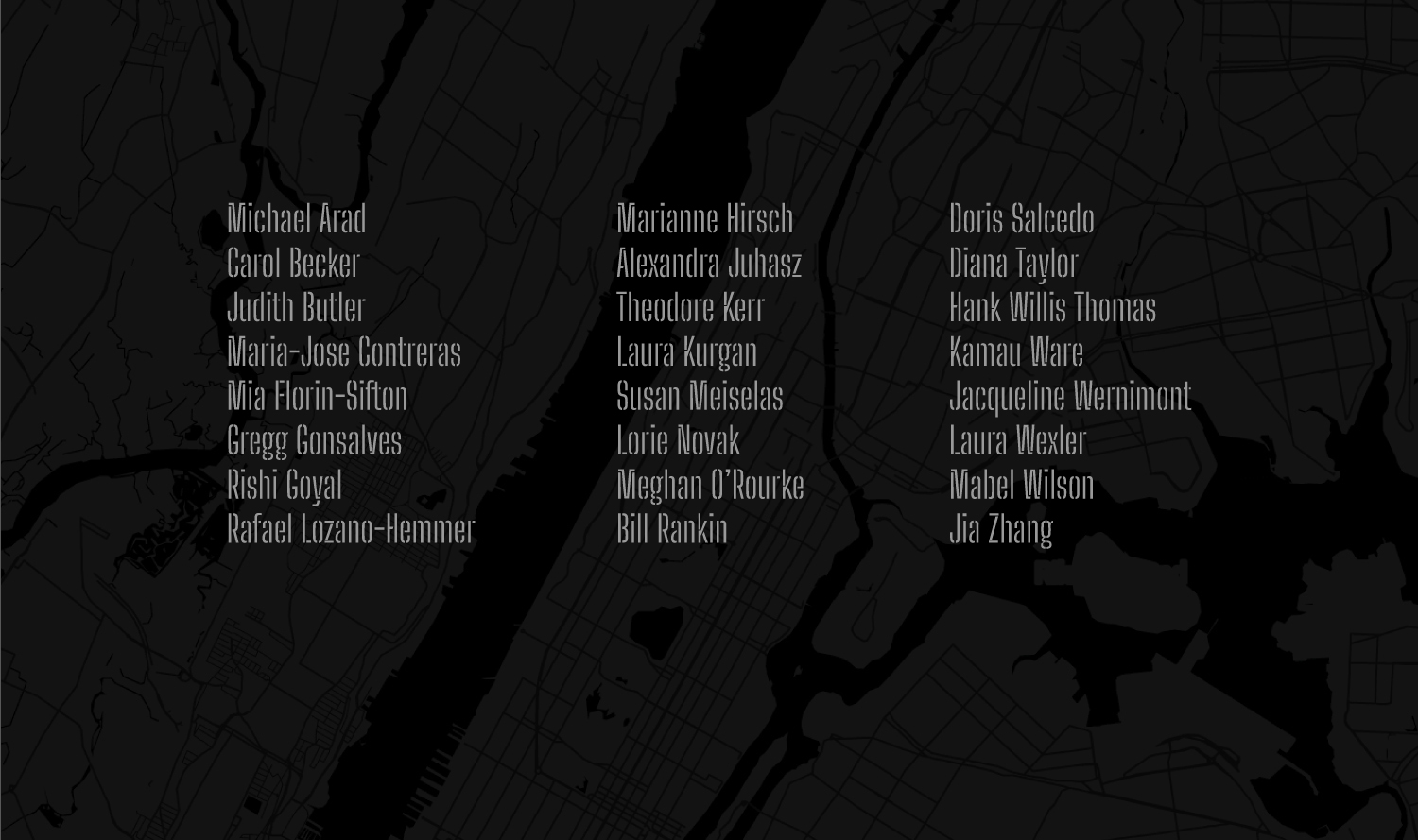To reflect on and supplement the work done in our workshops and gatherings, we invited the memorial artists and architects, geographers and demographers, epidemiologists and public health experts we have found inspiring to join us in several public roundtable discussions. Project participants joined for several participatory roundtables to reflect on “Covid Three Years Later.” Roundtables were co-sponsored with our partners.
Reparative Memory I and II, co-presented with the Columbia School of the Arts
Reparative Memory I
Michael Arad, Susan Meiselas, Doris Salcedo, Hank Willis Thomas, Mabel O. Wilson
Moderated by Carol Becker
10/14/21
Reparative Memory II
Rafael Lozano-Hemmer, María-José Contreras, Kamau Ware
Moderated by Marianne Hirsch, Diana Taylor
3/31/22
How can the devastating but radically differential losses caused by the global Covid-19 pandemic be memorialized? While acknowledging the social inequities and injustices the pandemic has exposed, might local memories of loss and neglect be transformed into a practice of justice and collective healing? What aesthetic memorial forms and strategies of engagement best foster the work of repair?
These roundtables approached the urgency of such challenges in conversations between noted artists who have responded to histories of violence and loss in vastly different geopolitical contexts. Their visionary memorial projects have mobilized painful memories, leaving space both for mourning and for imagining potential futures. Each of these artists discussed one project, sharing their process and the challenges faced in creating communities of memory.
Why Zip Codes, co-presented with Yale University Public Humanities
Gregg Gonsalves, Bill Rankin, Jacqueline Wernimont, Jia Zhang
Moderated by Laura Kurgan
2/22/22
Bringing together scholars and activists, this virtual roundtable asked: How has the Zip Code legacy shaped our experience and understanding of the ongoing pandemic? Can thinking through Zip Code maps help us equalize access to healthcare, safety and well-being? Can Zip Codes be mobilized in activist pursuits of social justice?
Chronic Life: Can We Go the Distance With the Virus?
Alexandra Juhasz, Theodore Kerr, Lorie Novak, & Meghan O’Rourke
Moderated by Laura Wexler
9/27/22
With the pandemic far from over, vaccination imperfect, and long Covid a significant threat, we are underprepared for the horizon of other viruses, and aware that consequences are vastly unequally distributed. In this roundtable, prominent artists and scholars presented art and organizing strategies drawn from lived experience with chronic illness, community activism, and the personal and political demands long-hauling presents.
An Afternoon with Judith Butler: On the Pandemic and Our Shared World
Judith Butler, with Marianne Hirsch, Mia Florin-Sefton, and Rishi K. Goyal
4/26/23
Judith Butler discusses their new book and what they learned from the pandemic. In What World Is This? A Pandemic Phenomenology (2022), Butler offers a new account of interdependency in which touching and breathing, capacities that amid a viral outbreak can threaten life itself, transcend the boundaries of the body and selfhood. ZCMP participants Marianne Hirsch and Mia Florin-Sifton and Columbia Medical Humanities professor and ER physician Rishi Goya respond to Butler’s provocations. Together, they think about repair in the midst of loss, destruction and institutional failure.
Covid Three Years Later

Together, Not Alone
Centro Civico Cultural Dominicano
Judith Helfand and ZCMP Participants
Moderated by Marilú Galvan
9/21/22
How has Covid affected our communities and what can we do together?
Covid: What Now?
City College of New York,
Judith Helfand, Marie Nazon, Sarah Senk
Moderated by Mikhal Dekel
11/10/22
The Covid pandemic is diminished, and we are back in classrooms, workplaces, restaurants and social places. But who is left behind? What is still owed to those who lost their lives?
Covid Three Years Later: Together, Not Alone
Museum of the City of New York
Performance, Film Screening, Roundtable Discussion
2/17/23


